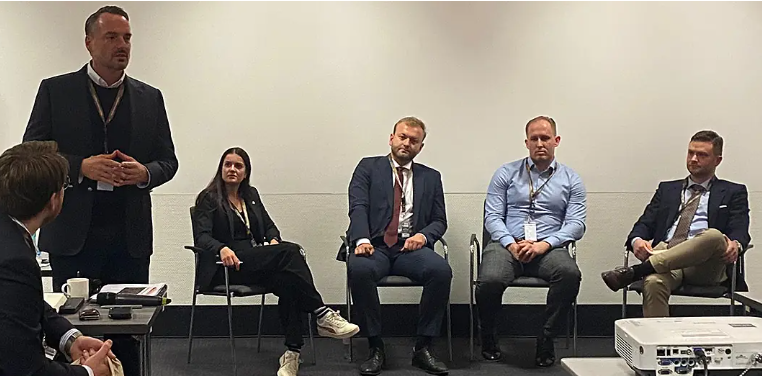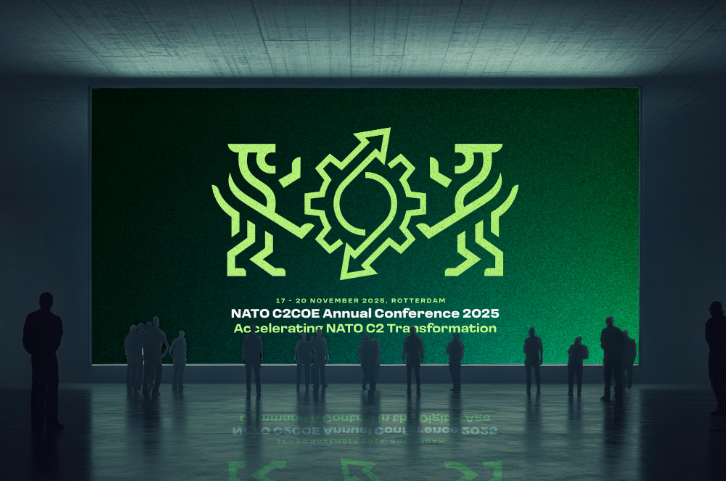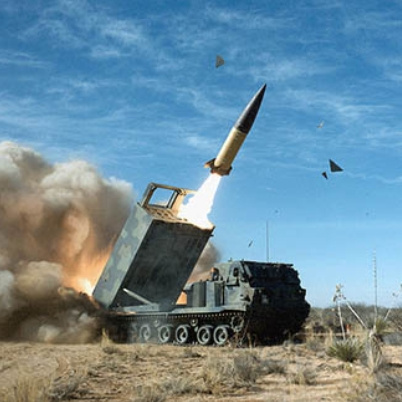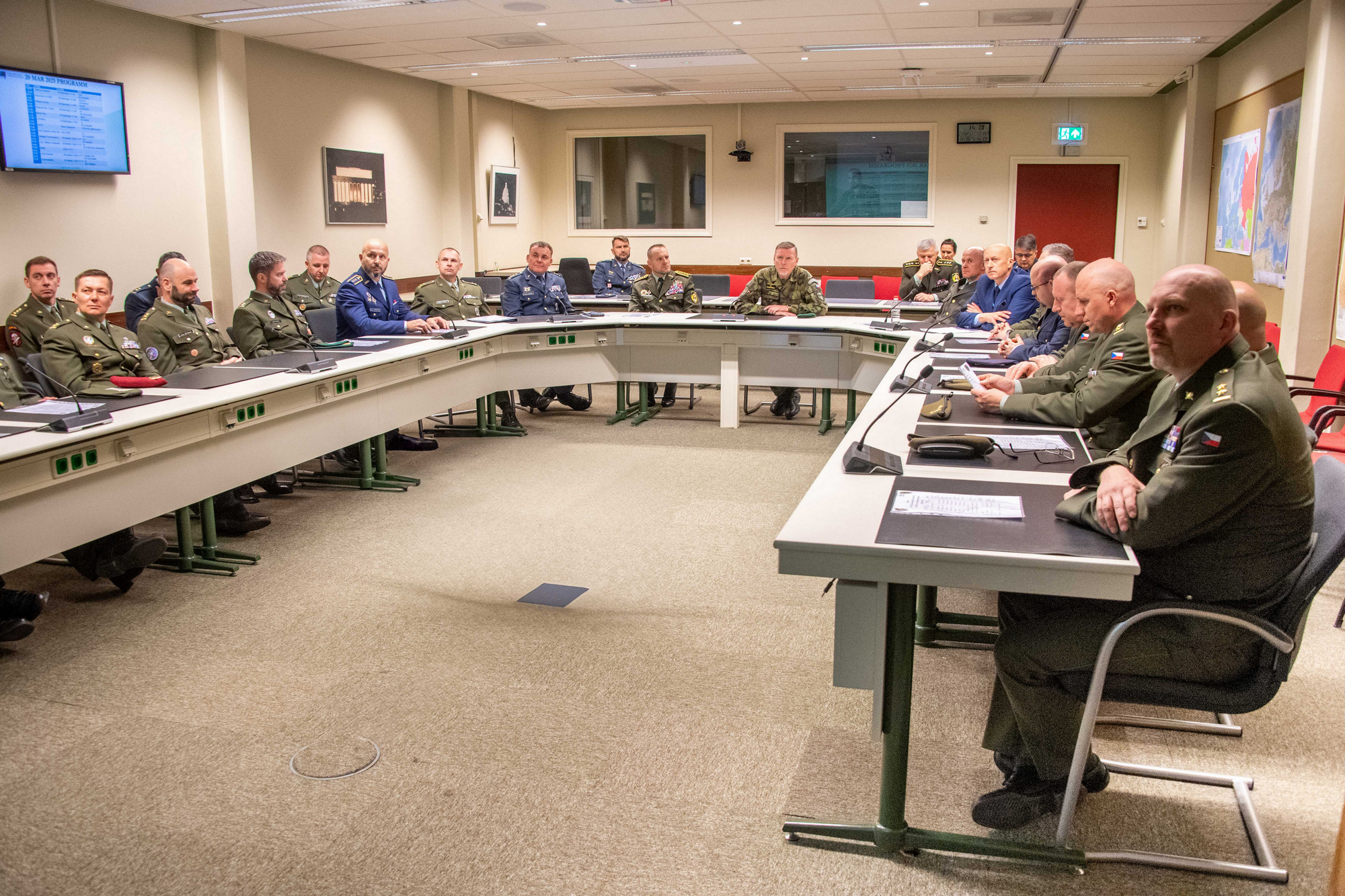The German Reservists Association hosted its first Reserve Forces Symposium in Dresden last weekend. Under the title „Geopolitical Challenges in Eastern Europe and the Interoperability of Reserve Forces,“ more than 60 representatives from ten countries gathered to discuss the future of reserve forces with a view to NATO’s eastern flank. Participants included academics, (reserve) officers, and chairpersons of reservist associations from European partner nations. The goal: to strengthen Europe’s military resilience and establish a new foundation for cooperation among the various reserve forces. The format, which took place for the first time after months of preparation, was unanimously considered a success by the participants – not least because it facilitated a rare, open exchange across national borders.
The opening event on Friday evening was already marked by a focus on international cooperation. Following a welcome address by Sascha Rahn, Vice President for International Cooperation, Jørn Buø, President of the Inter-Allied Reserve Officers‘ Association (CIOR), spoke. He praised the new symposium as „an important platform for pooling European resources and learning from one another.“ Buø emphasized that reservists could play a crucial role in an increasingly volatile global situation—provided their training, equipment, and integration into the armed forces are organized in a modern way. The decidedly collegial exchange on the first evening thus laid an excellent foundation for the in-depth discussions of the following day.
Conscription Debate and New Technologies
On Saturday, the focus was on expert discourse. Dr. Jan Kofroň from Charles University in Prague posed the provocative question: „Reintroducing Conscription in Europe? Think Twice — One Model Does Not Fit All.“ Kofroň highlighted the immense political, social, and military challenges associated with the potential reintroduction of conscription in Europe. It became clear that the debate, not only in Germany but in many European countries, is a highly complex and protracted political undertaking requiring tailored solutions.
Dr. Jan Kofroň opened the series of presentations on Saturday. (Photo: Sascha Vugrin)
Following this, Professor Josef Prochazka, Director of the Centre for Security and Military Strategic Studies at the University of Defence in Brno, provided a detailed overview of the reserve and defense systems in Lithuania, Latvia, and Estonia. The Baltic states serve as a model for many in their ability to quickly adapt to changing threat landscapes. Integrating the reserves into national defense is a key political issue in these countries. Lithuania, Latvia, and Estonia recognized early on that resilience can only be achieved through the consistent integration of reserves.
Another focus was the role of new technologies. A panel discussion with a representative from the defense company Stark Defence addressed the question of how digitalization, drone defense, and cyber warfare affect the operational readiness of reservists. The speaker posed the central question that concerned all participants: What does the new, technology-driven battlefield in Ukraine mean for reservists in the event of a defense or alliance intervention? The ensuing discussion centered on the need to equip reserve forces quickly and effectively with new capabilities, particularly in the areas of drone defense, cybersecurity, and autonomous systems. The consensus was that reservists must be up-to-date not only militarily but also technologically. „Anyone who understands the reserves as a strategic resource must also equip them with modern knowledge,“ concluded one participant.
Discretion as a prerequisite for openness
The entire Reserve Forces Symposium was held under the Chatham House Rule. This means that content may be discussed, but the source of the contributions may not be identified. According to many participants, this rule facilitated an unusually open exchange on topics that are otherwise often characterized by political reticence. With the premiere of the symposium, the „International Cooperation“ department has established a format that lays claim to a leading European role. It brings academia, politics, and military practice together – an approach that has rarely been seen in security policy discourse.
Some of the participants at the Reserve Forces Symposium in Dresden. (Photo: Tassilo Schmitt-Fahnert)
The response shows that Europe is searching for new ways of thinking about its defense. And the reserve, long a marginal issue, is increasingly moving to the center of these considerations. „The event has shown that a common European dialogue on security is not only necessary, but also possible,“ one participant summarized. The desire to continue the format was clearly audible at the end of the weekend – a signal that Europe intends to pool its resources more closely in the future.
Link to the German article: https://www.reservistenverband.de/magazin-die-reserve/reserve-forces-symposium-in-dresden-setzt-neue-massstaebe/




